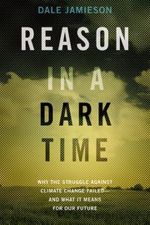 The New Zealand Labour Party announced their climate change policy on 24 August; the Sunday before last Sunday.
The New Zealand Labour Party announced their climate change policy on 24 August; the Sunday before last Sunday.
At first glance, it sounds refreshingly like a policy that takes anthropogenic global warming seriously. From the announcement:
A Labour Government will put in place a comprehensive climate change strategy focusing on both mitigation and adaptation, establish an independent Climate Commission and implement carbon budgeting, says Labour Climate Change spokesperson Moana Mackey.
“This is about future-proofing our economy. Making the transition to a low-carbon clean technology economy is not a ‘nice to have’ as the current Government would have us believe. It is a transition we must make and the sooner we begin, the easier that transition will be.”
How did the media respond? Well they ignored it. I haven’t seen any reporting of Labour’s climate change policy in the Herald, or Stuff/Fairfax, or Radio NZ or TV1 or TV3. I only stumbled onto it via Scoop a week after the release.
Like the 2011 election, the issue of climate change has been notable for it’s absence (the snake swallowing the elephant in the room).
However, some climate change focused NGOs responded positively to Labour’s policy. Simon Terry at the Sustainability Council said a carbon budget was the single most important reform. Generation Zero and the Iwi Leaders Group and forest owners welcomed the policy. The mainstream media of course also ignored these NGO views.
However, before I get into the detail of Labour’s climate change policy (a topic for another post), it’s important to ask “are the dots connected with Labour’s energy policy?” Unfortunately, the dots are not connected and the energy policy is 180 degrees contrary to the concept of a carbon budget.

 Dale Jamieson is a philosopher long acquainted with the work of climate scientists. His recently published book was begun 25 years ago, “an avocation that became an obsession”. He used to joke when asked why the book wasn’t appearing that he was waiting to see how the story ended. Then it dawned on him after the failed 2009 Copenhagen conference that there was no ending, and certainly not a happy one. The continuing journey is largely a matter of salvaging what we can from the wreckage. The book’s title sets the stark picture:
Dale Jamieson is a philosopher long acquainted with the work of climate scientists. His recently published book was begun 25 years ago, “an avocation that became an obsession”. He used to joke when asked why the book wasn’t appearing that he was waiting to see how the story ended. Then it dawned on him after the failed 2009 Copenhagen conference that there was no ending, and certainly not a happy one. The continuing journey is largely a matter of salvaging what we can from the wreckage. The book’s title sets the stark picture:  This guest post is by David Tong, an Auckland based community lawyer working on his Master’s in Law on the UN climate talks. He chairs the P3 Foundation and co-chairs the Aotearoa New Zealand Human Rights Lawyers Association, and last year tracked New Zealand’s climate negotiators as an Adopt a Negotiator Fellow.
This guest post is by David Tong, an Auckland based community lawyer working on his Master’s in Law on the UN climate talks. He chairs the P3 Foundation and co-chairs the Aotearoa New Zealand Human Rights Lawyers Association, and last year tracked New Zealand’s climate negotiators as an Adopt a Negotiator Fellow.